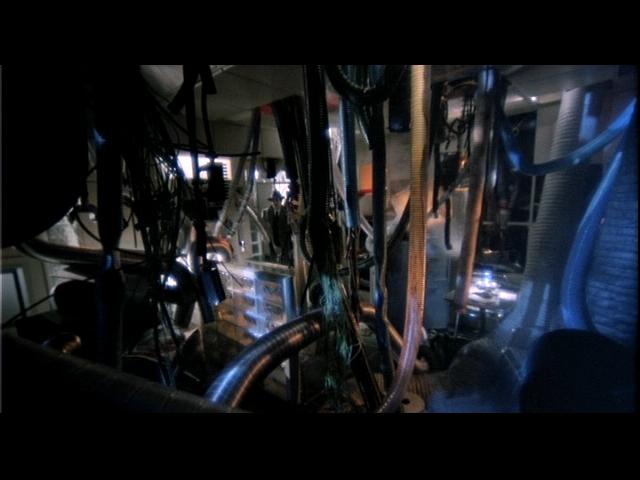Part 2
Brazil (1985)
The architecture of the 'official' world of Terri Gilliam's Brazil (1985) is similar in character to that of Equilibrium (2002); it is cavernous and bare, drawing inspiration from the monumental architecture of repressive political regimes. The spaces emphasize the power of the state and highlight the insignificance of the individual within the political world. The title of the film, "Brazil", is a direct reference to the oppressive military dictatorship which ruled the country of Brazil from 1964 to 1985.
Contrasting this rigid order is the chaos of Sam's home, which is filled with ducts in bureaucratic retribution for his contact with the subversive 'terrorist' Archibald Tuttle. Sam is literally driven out of his private space leaving him entirely in the public realm or in the private spaces of other characters in the film. The private spaces of regular citizens such as the Buttles and Jill Layton are smaller, and cozier; better scaled for human beings encouraging interaction between people.
The architecture of the dream world of Sam Lowry, interestingly, is as monumental and cold as that of the official world, suggesting that perhaps he is as interested in control and repression as those in power. The narrative is a bit mysterious - for the majority of the film, Sam is an everyday hero, first trying to correct a devastating clerical error and finally fighting outright against the regime, but at the end of the film the audience is left wondering if the entire film was a figment of Sam's imagination - a dissociative episode while he is being tortured for crimes against the state. Perhaps he is not an everyday hero, but in fact a terrorist fighting an oppressive regime with oppressive tactics of his own.
Much like Equilibrium (2002), Brazil (1985) presents a socio-political structure which discourages personal connections and punishes the individual's questioning of the authority of the state. Jill Layton is labelled a terrorist and scheduled for interrogation or termination because of her quest to correct the clerical error which resulted in the arrested and death of her neighbour. Sam Lowry is punished for his love for and quest to protect Jill Layton. The private, or unsocial, space is repeatedly violated in the name of social order - ironically undermining it by preventing the antagonism between men which produces genuine social order.
 |
 |
 |
Torture Chamber |
The Ducts |
Dream World |